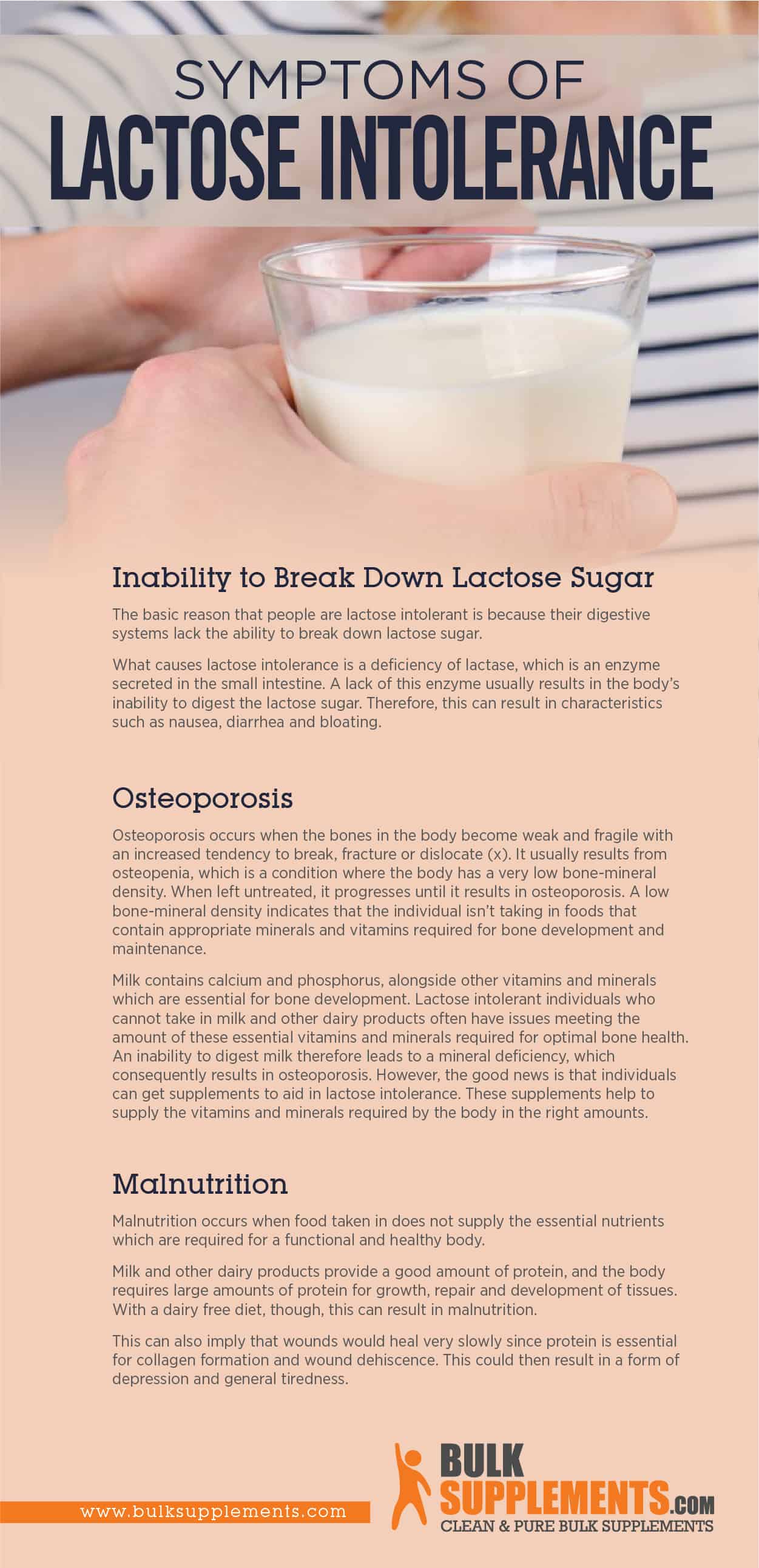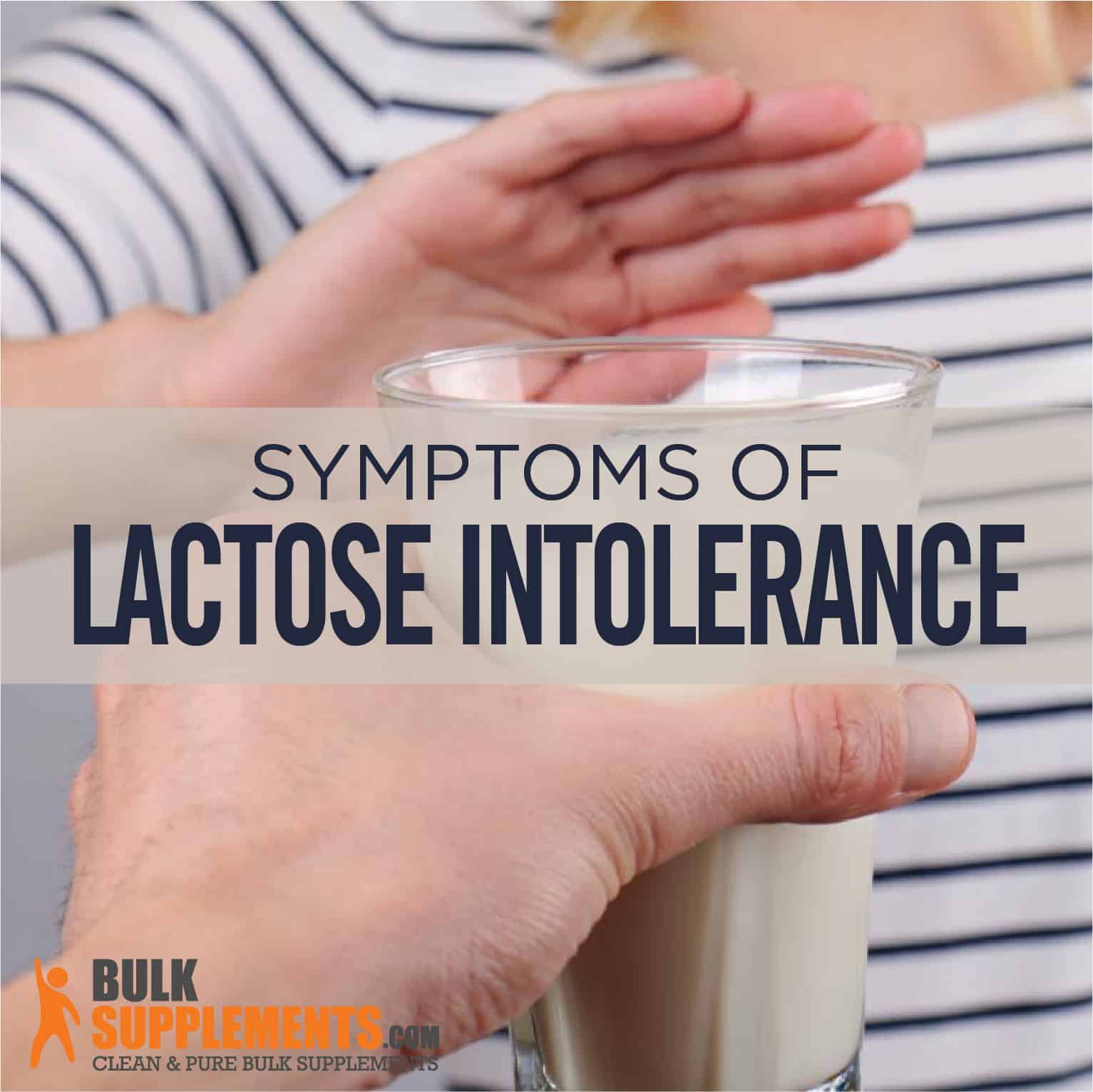What is Lactose Intolerance?
You hear all the time about people who cannot consume dairy products like milk or cheese. But why? It’s because they’re lactose intolerant, which means that their body is unable to digest lactose fully. Lactose is the sugar mainly present in dairy products.
If you want to fully understand the question ‘what is lactose intolerance’, you would need to examine lactose intolerant individuals. People with lactose intolerance exhibit certain characteristics or symptoms that show they actually have digestive problems after consuming lactose. These signs include diarrhea, flatulence and stomach bloating, among a host of other symptoms.
The symptoms exhibited in different people usually depends on the total quantity of a lactose-containing substance they’d consumed. Some people can take in a small quantity of milk and still be alright. Others, though, cannot even ingest the smallest amount of lactose.
Many often ask “can you become lactose intolerant?” The answer is yes. Anybody can become lactose intolerant due to factors that will be discussed later in this article.
Lactose Intolerance Characteristics
Inability to Break Down Lactose Sugar
The basic reason that people are lactose intolerant is because their digestive systems lack the ability to break down lactose sugar.
What causes lactose intolerance is a deficiency of lactase, which is an enzyme secreted in the small intestine. A lack of this enzyme usually results in the body’s inability to digest the lactose sugar. Therefore, this can result in characteristics such as nausea, diarrhea and bloating.
Osteoporosis
Osteoporosis occurs when the bones in the body become weak and fragile with an increased tendency to break, fracture or dislocate (x). It usually results from osteopenia, which is a condition where the body has a very low bone-mineral density. When left untreated, it progresses until it results in osteoporosis. A low bone-mineral density indicates that the individual isn’t taking in foods that contain appropriate minerals and vitamins required for bone development and maintenance.
Milk contains calcium and phosphorus, alongside other vitamins and minerals which are essential for bone development. Lactose intolerant individuals who cannot take in milk and other dairy products often have issues meeting the amount of these essential vitamins and minerals required for optimal bone health. An inability to digest milk therefore leads to a mineral deficiency, which consequently results in osteoporosis. However, the good news is that individuals can get supplements to aid in lactose intolerance. These supplements help to supply the vitamins and minerals required by the body in the right amounts.
Malnutrition
Malnutrition occurs when food taken in does not supply the essential nutrients which are required for a functional and healthy body.
Milk and other dairy products provide a good amount of protein, and the body requires large amounts of protein for growth, repair and development of tissues. With a dairy free diet, though, this can result in malnutrition.
This can also imply that wounds would heal very slowly since protein is essential for collagen formation(x). Collagen assists in binding and elasticity of the skin.
Causes of Lactose Intolerance
Deficiency of Lactase in the Body
The major cause of lactose intolerance is a deficiency in the production or secretion of lactase, which is produced in the small intestine. It occurs when the small intestine does not produce enough of the enzyme to digest lactose. Usually, lactase breaks lactose into two simple sugars — namely galactose and glucose — which then go through the intestinal lining to be absorbed into the bloodstream (x).
When an individual is lactase deficient, the lactose content present in ingested food gets transported to the colon instead of it undergoing digestion and absorption. Within the colon, bacteria then interacts with the undigested lactose. The result of this interaction comes in the form of the previously mentioned symptoms.
Aging
Every newborn, except in very rare cases, has the ability to secrete lactase. This helps them break down the lactose in the milk they take in.
However, as aging sets in, there is a high probability that lactase levels will decline. This implies that instead of the lactose being broken down into glucose and galactose, it goes into the colon. The sugars are then broken down by the bacteria in the colon, subsequently creating excess fluid and gas.
This phenomenon of reduced lactase production is a common one. According to the National Institute of Health (NIH), about 65 percent of the entire world population has experienced a reduction in their ability to digest lactose after infancy (x).
Genetic Factors
Studies show that genetic makeup can determine whether or not you experience lactose intolerance at any point in your life. This is due to the fact that lactase is secreted or produced upon instructions from the LCT Gene (x).
Furthermore, this gene could become a lot less active, which would result in lactose intolerance. In certain individuals, lactose intolerance starts to manifest after age 2, while some others may not experience lactose intolerance until adolescence or adulthood. This depends on how rapidly the enzyme loses its function.
Also, according to the NIH, some ethnic groups are more prone to lactose intolerance than others. People of East Asian, West African, Jewish, Arab, Greek and Italian descent experience lactose intolerance with more frequency than other ethnic groups in adulthood (x).
Injuries/Accidents
Aside from genetic factors, aging and lactase deficiency, an injury to the small intestine could also render it unable to digest lactose.
According to the National Institute of Diabetes and Digestive and Kidney Diseases (NIDDK), any injury to the small intestine, whether resulting from radiation, infection, surgery, disease or accident, could lead to lactose intolerance symptoms upon taking milk or any other dairy products (x).
Furthermore, drinking polluted or poorly treated water can lead to a bowel injury, which could also result in the body becoming lactose intolerant.

Remedy for Lactose Intolerance
Presently, there is no formulated and certified cure for lactose intolerance. However, there are certain measures you can take to avoid the unease brought about by lactose intolerance. Some of these measures include:
- Eating and drinking milk and ice-cream that have their lactose levels reduced to the barest minimum
- Combine very small quantities of dairy products with your regular diet
- Add some powder or liquid to your regular milk to help break down the lactose before taking it
- Do not take in large servings of milk and other dairy products in a single sitting
Of course, if you cannot digest any amount of lactose and exhibit some of the symptoms, then it is likely you will have to remove all lactose from your diet.
Supplements for Lactose Intolerance
Since you would be removing every trace of lactose-containing food from your diet, you would need to get these vital nutrients and minerals from other sources. Thanks to the availability of supplements to aid in lactose intolerance, you can easily get the nutrients your body requires.
One major supplement that supplies all the nutrients, vitamins and minerals present in these lactose-containing food substances is soy. This is due to the fact that soy has large amounts of calcium, which is the major mineral in milk. Soy is generally safe unless you are suffering from a milk allergy. This mainly occurs in children from ages 3 and below, implying an inability to take soy milk (x). However, most children outgrow this allergy eventually.
Another means is taking lactase enzyme drops or tablets. The major setback, however, is that this type of supplement does not always work for everyone with lactose intolerance.
The Bottom Line
In cases of lactose intolerance, early detection is of paramount importance. The earlier you detect that you are lactose intolerant, the faster you can adapt and begin to take appropriate steps to living a healthy life without milk and some other dairy products.
In order to avoid health risks associated with lactose intolerance, it is also essential that you pay a visit to your physician. This is due to the fact that there are other deficiencies that exhibit these same symptoms. If you are curious about when to see a doctor, it is best that you go immediately after seeing telltale symptoms.
Since lactose intolerance is an inability to digest lactose, you may also take supplements for indigestion, but only after you have seen your physician.


